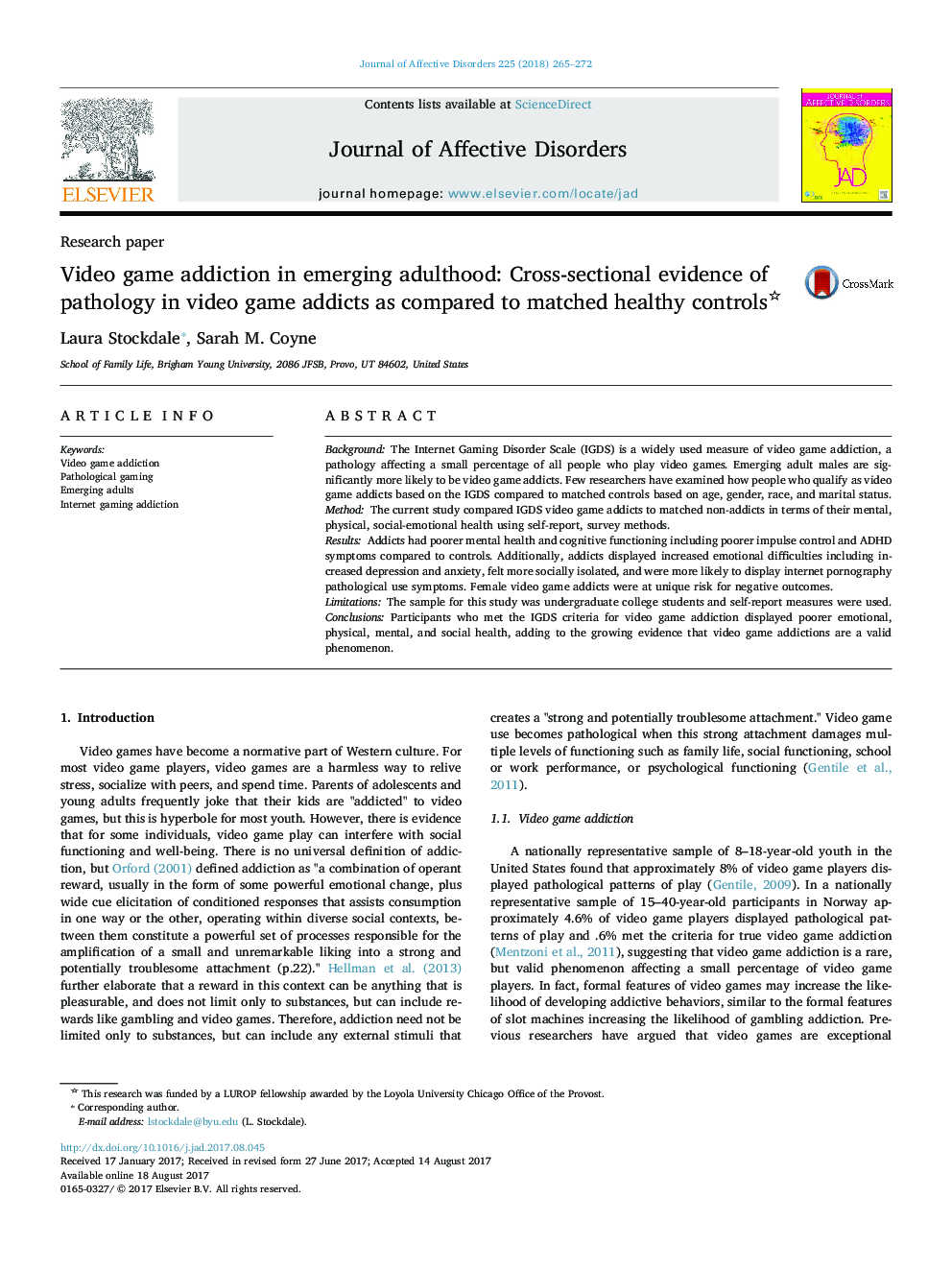| Article ID | Journal | Published Year | Pages | File Type |
|---|---|---|---|---|
| 5721719 | Journal of Affective Disorders | 2018 | 8 Pages |
â¢Measures of socio-emotional, mental, and physical health were given.â¢Addicts displayed poorer overall health.â¢Addicts were more likely to report internet pornography problematic use.
BackgroundThe Internet Gaming Disorder Scale (IGDS) is a widely used measure of video game addiction, a pathology affecting a small percentage of all people who play video games. Emerging adult males are significantly more likely to be video game addicts. Few researchers have examined how people who qualify as video game addicts based on the IGDS compared to matched controls based on age, gender, race, and marital status.MethodThe current study compared IGDS video game addicts to matched non-addicts in terms of their mental, physical, social-emotional health using self-report, survey methods.ResultsAddicts had poorer mental health and cognitive functioning including poorer impulse control and ADHD symptoms compared to controls. Additionally, addicts displayed increased emotional difficulties including increased depression and anxiety, felt more socially isolated, and were more likely to display internet pornography pathological use symptoms. Female video game addicts were at unique risk for negative outcomes.LimitationsThe sample for this study was undergraduate college students and self-report measures were used.ConclusionsParticipants who met the IGDS criteria for video game addiction displayed poorer emotional, physical, mental, and social health, adding to the growing evidence that video game addictions are a valid phenomenon.
